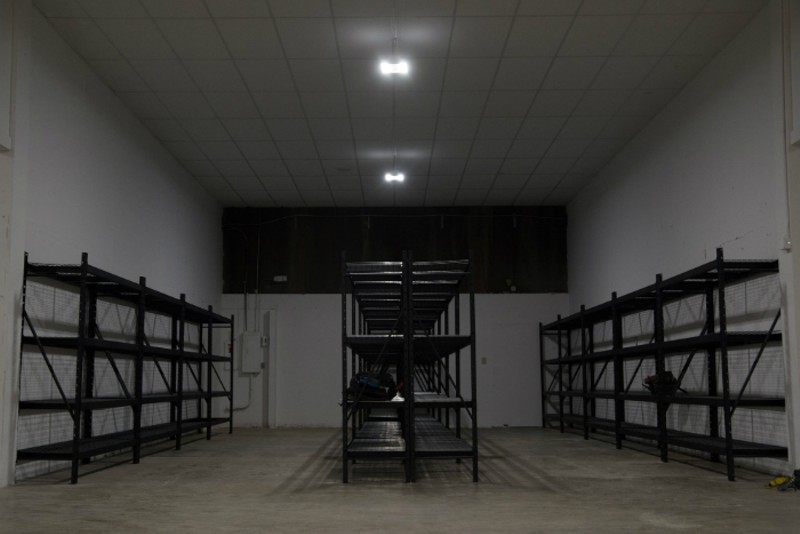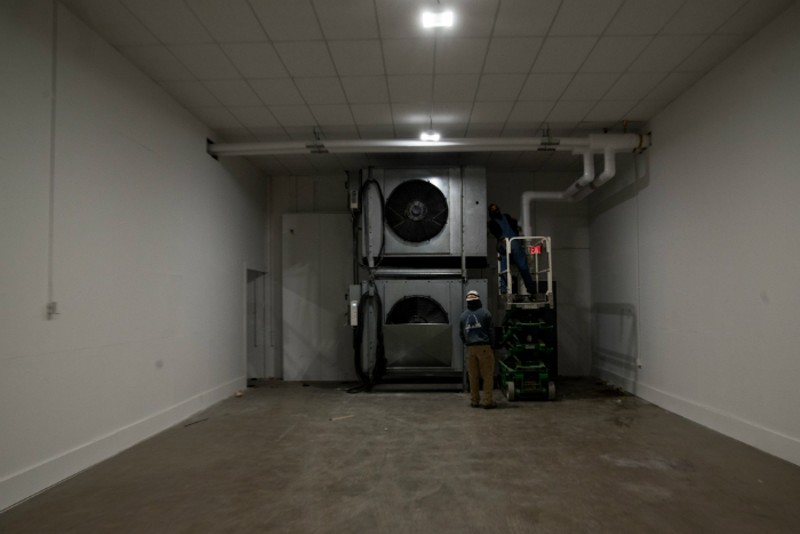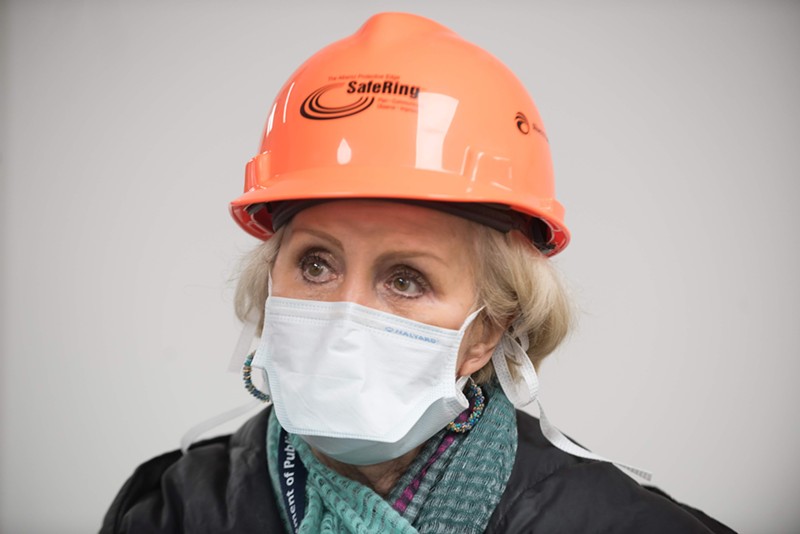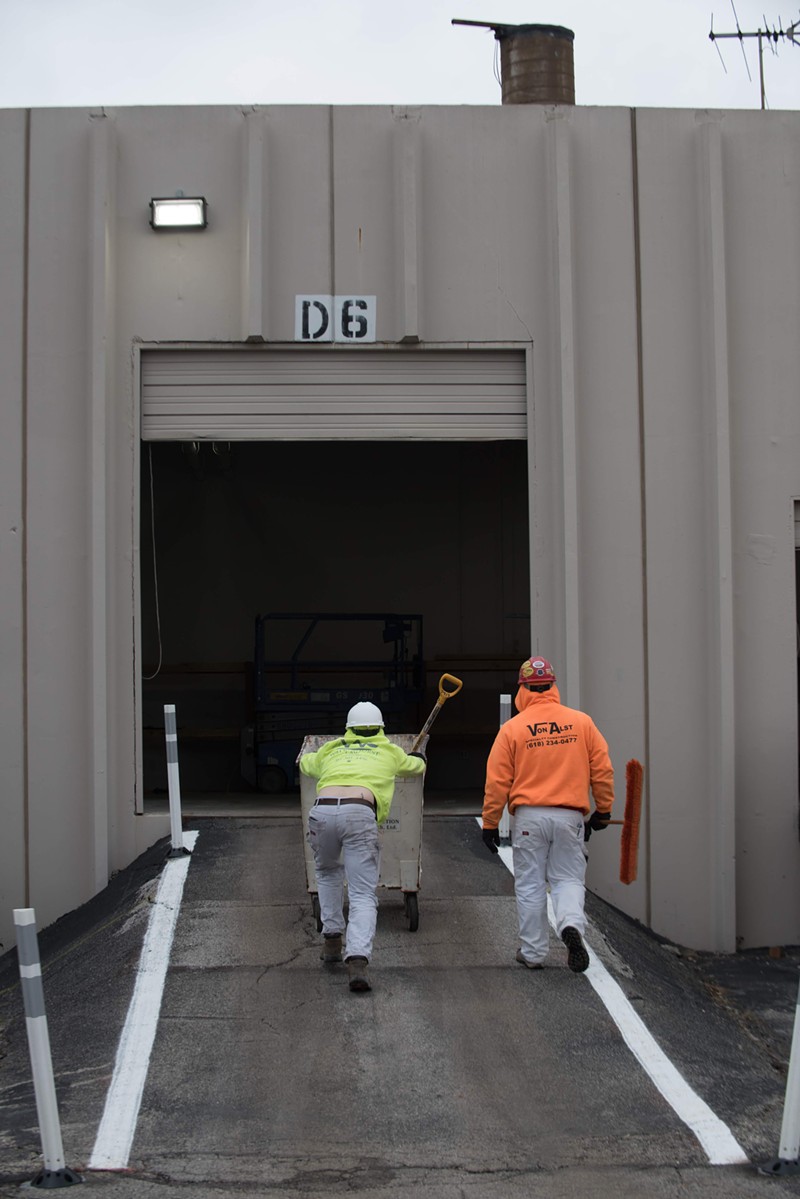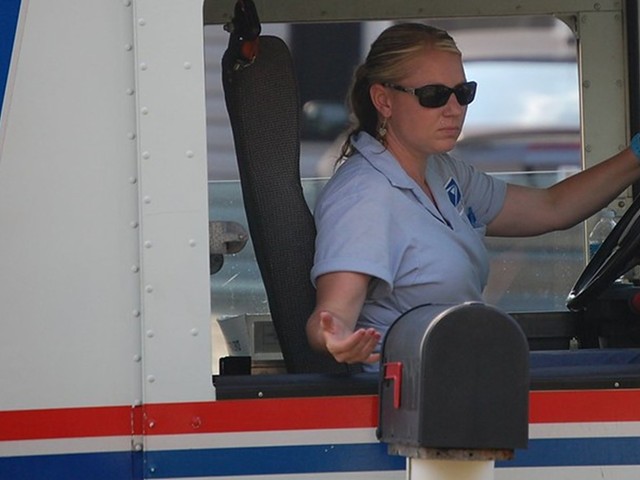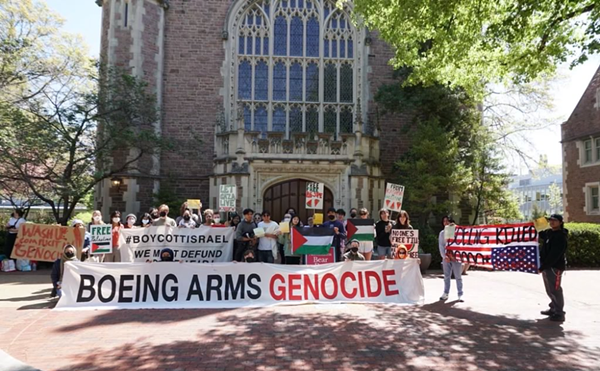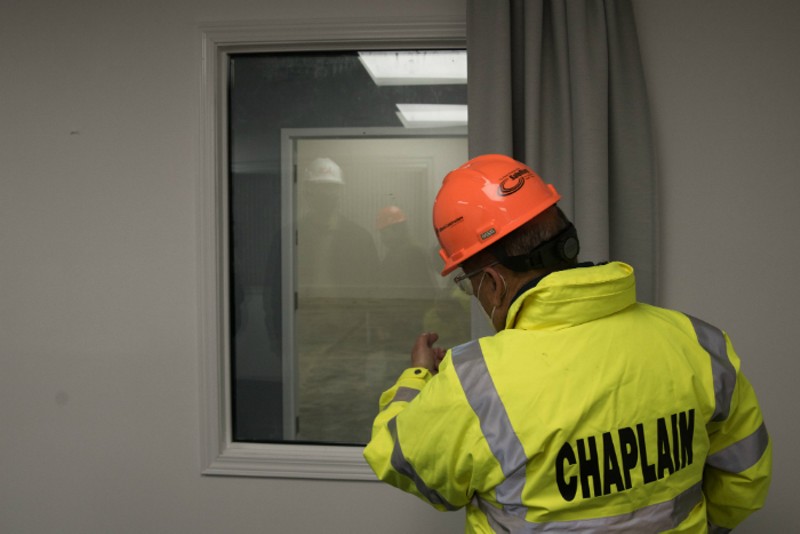
TRENTON ALMGREN-DAVIS
Rabbi Mark L. Shook, Chaplain Coordinator for the St. Louis County Police, points through the visitation window at the Dignity Transfer Center.
The renovation of an empty warehouse to create a sprawling "surge morgue" is almost done.
At the rear of a bland industrial complex in Earth City, just across the Missouri River from St. Charles, workers have been retrofitting the space with filtered air systems, a locking pen for the personal effects of the dead to be guarded by St. Louis County police and a funeral-home like visitation room where families will be able to hold services and look through a window at lost relatives, safely contained on the other side.
On Friday, reporters were allowed inside for the first time to see a project that is almost unimaginable in its implications.
Should the temporary morgue, named the Dignity Transfer Center, come into play, it will mean that the existing morgues are overrun and the capacity at hospitals and funeral homes are no longer enough to hold the dead.
"The hope is to never utilize this building, but we have a responsibility to prepare," the county says in a news release about the project.
The complex is massive. It spans 29,000 square feet, which is more than half the size of a football field. There is room for 1,300 bodies. Where construction workers pushed a cartful of shovels up a loading dock at the rear of the building will become the entrance where the dead will be carried inside, a grim task to be conducted with the help of Missouri National Guard units.
St. Louis County is constructing the $2 million project — money it hopes will be reimbursed by federal disaster relief funds — but it could also be used by surrounding communities, including St. Charles, Jefferson and Franklin counties as well as St. Louis city.
Any need for the facility would probably be the result of a convergence of challenges. During normal times, an average of 28 people die every day in St. Louis County, mostly from natural causes or medical issues. There are also the killings and suicides, overdoses and traffic accidents. Handling even the standard amount of death could become a strain due to COVID-19, officials say. Precautions at funeral homes could delay services, or families might want to wait until out-of-town relatives are allowed to travel in. Backlogs could form.
So it's not just the addition of COVID-19 deaths but also the bleak and difficult logistics of attending to those who die under any circumstances, now that everything is harder to accomplish. Still, the number of people killed by the coronavirus is a wild card. The tally increases every day. Since 67-year-old Judy Wilson-Griffin became the first person in St. Louis County and the region to die of the virus on March 20, there have been another 69 deaths and more than 2,000 confirmed cases, according to county statistics on Friday afternoon. The state's latest numbers include 165 deaths and more than 5,200 positive tests.
At the temporary morgue, a wide range of partners from the region's hospitals, elected officials, funeral homes, fire departments, police forces and clergy have collaborated on the best ways to operate the facility if it's pressed into action. There are plans in place to ensure religious beliefs and customs are accommodated. The building will be secured, and families members who have made appointments will be the only people who are allowed to enter. Personnel will be dressed professionally to add a level of respect.
On Friday, a quartet of representatives met the journalists who arrived to survey the plans. They included St. Louis County Medical Examiner Mary Case, Rabbi Mark Shook who is a police chaplain, county Transportation and Public Works Director Deanna Venker and Robert Lonning who has more than 40 years in funeral services.
They described the steps they would take to treat the dead and their families with as much dignity as possible. They talked about the nine different chaplains who would be available and led the way into the private rooms for families. Rabbi Shook slid aside a curtain from a window to show where families will be able to peer through at their relatives and say goodbye.
For now, it is all hypothetical. Maybe the existing morgues, hospitals and funeral homes will be able to handle all the deaths. But maybe not.
Outside, construction continued on a 29,000-square-foot, $2 million facility that no one wants to use.
We welcome tips and feedback. Email the author at [email protected] or follow on Twitter at @DoyleMurphy.

